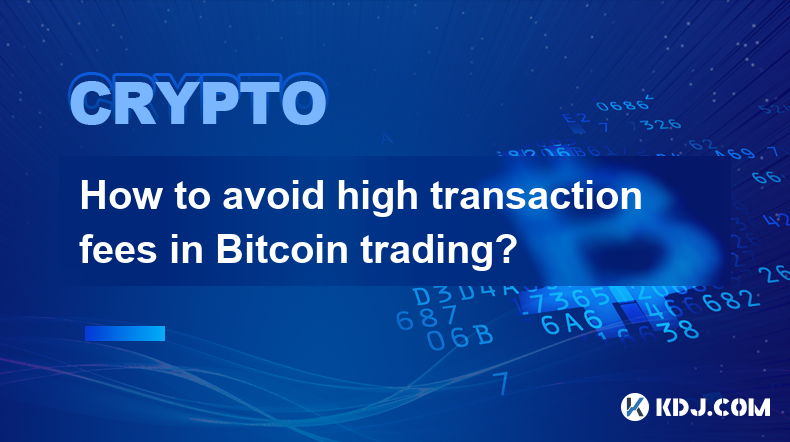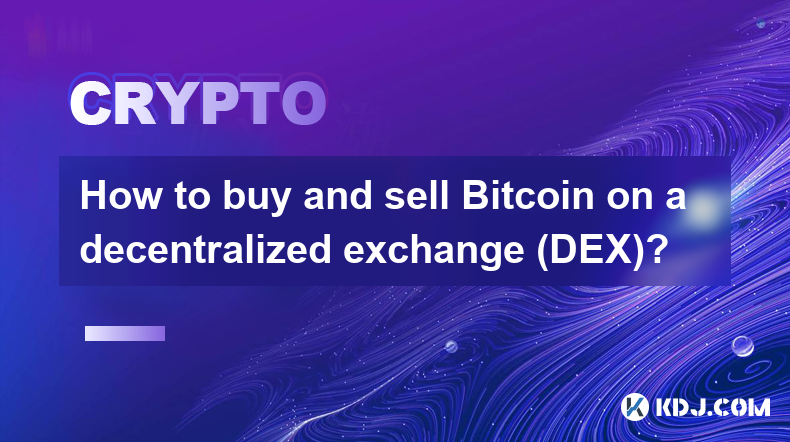-
 Bitcoin
Bitcoin $91,256.3033
3.39% -
 Ethereum
Ethereum $1,723.5244
5.98% -
 Tether USDt
Tether USDt $1.0006
0.10% -
 XRP
XRP $2.1808
2.69% -
 BNB
BNB $611.6352
1.26% -
 Solana
Solana $145.2440
4.71% -
 USDC
USDC $1.0001
0.07% -
 Dogecoin
Dogecoin $0.1726
6.92% -
 TRON
TRON $0.2472
1.71% -
 Cardano
Cardano $0.6638
3.44% -
 Chainlink
Chainlink $14.0337
4.16% -
 Avalanche
Avalanche $21.8740
6.44% -
 UNUS SED LEO
UNUS SED LEO $8.9676
-1.35% -
 Stellar
Stellar $0.2598
-0.15% -
 Sui
Sui $2.4368
8.47% -
 Shiba Inu
Shiba Inu $0.0...01309
4.18% -
 Hedera
Hedera $0.1782
3.94% -
 Toncoin
Toncoin $2.9908
-0.39% -
 Bitcoin Cash
Bitcoin Cash $361.0314
4.64% -
 Hyperliquid
Hyperliquid $18.8127
3.63% -
 Litecoin
Litecoin $82.7354
3.19% -
 Polkadot
Polkadot $3.9250
0.37% -
 Dai
Dai $1.0001
0.03% -
 Bitget Token
Bitget Token $4.5168
0.88% -
 Ethena USDe
Ethena USDe $0.9994
0.01% -
 Pi
Pi $0.6419
0.67% -
 Monero
Monero $219.7573
2.35% -
 Pepe
Pepe $0.0...08517
7.03% -
 Uniswap
Uniswap $5.6768
4.46% -
 Aptos
Aptos $5.1717
0.94%
Can Bitcoin wallet addresses be tracked?
Bitcoin wallet addresses can be tracked using blockchain analysis, raising privacy concerns; users can enhance privacy by using new addresses or mixing services.
Apr 22, 2025 at 01:56 am

Can Bitcoin wallet addresses be tracked?
Bitcoin, the pioneering cryptocurrency, operates on a decentralized network known as the blockchain. One of the key features of Bitcoin is the ability to conduct transactions without the need for intermediaries like banks. However, this raises an important question: can Bitcoin wallet addresses be tracked? In this article, we will explore the nuances of Bitcoin address tracking, the mechanisms behind it, and the implications for users.
Understanding Bitcoin Wallet Addresses
A Bitcoin wallet address is a unique identifier used to send and receive Bitcoins. It is a string of alphanumeric characters derived from the public key of a user's wallet. Each Bitcoin address is unique and can be generated multiple times for each user, adding a layer of privacy.
Bitcoin addresses are pseudonymous, meaning they do not directly reveal the identity of the user. However, the transactions associated with these addresses are recorded on the public blockchain, which can be analyzed to trace the flow of funds.
How Bitcoin Transactions Are Recorded
Every Bitcoin transaction is recorded on the blockchain, a public ledger that contains all transactions ever made. Each transaction includes the sender's address, the recipient's address, and the amount transferred. This information is transparent and accessible to anyone who wishes to view it.
The blockchain's transparency allows for the tracking of Bitcoin transactions. By analyzing the blockchain, one can follow the trail of Bitcoins from one address to another. This process is known as blockchain analysis and is used by various entities, including law enforcement and cryptocurrency analytics firms.
Methods of Tracking Bitcoin Wallet Addresses
There are several methods used to track Bitcoin wallet addresses. One common method is through the use of blockchain explorers, which are tools that allow users to view and analyze the blockchain. By entering a Bitcoin address into a blockchain explorer, one can see all the transactions associated with that address.
Another method involves clustering analysis, where multiple addresses are grouped together based on their transaction patterns. This can help identify the owner of multiple addresses, as transactions between these addresses may indicate that they belong to the same entity.
Law enforcement agencies and cryptocurrency analytics firms often use more sophisticated methods, such as chain analysis software. These tools can trace the flow of funds across multiple transactions and identify patterns that may indicate illegal activities.
Privacy Concerns and Solutions
The ability to track Bitcoin wallet addresses raises significant privacy concerns for users. While Bitcoin transactions are pseudonymous, they are not completely anonymous. This means that with enough data and analysis, it is possible to link a Bitcoin address to a real-world identity.
To enhance privacy, users can employ several strategies. One approach is to use new addresses for each transaction, which makes it more difficult to link transactions to a single user. Another method is to use mixing services or tumblers, which mix Bitcoins from multiple users to obscure the trail of funds.
Cryptocurrency privacy coins, such as Monero and Zcash, offer enhanced privacy features that make it more difficult to track transactions. These coins use advanced cryptographic techniques to shield the sender, recipient, and amount of each transaction.
Legal and Regulatory Implications
The ability to track Bitcoin wallet addresses has significant legal and regulatory implications. Governments and financial institutions are increasingly interested in monitoring cryptocurrency transactions to combat money laundering, terrorist financing, and other illegal activities.
In some jurisdictions, cryptocurrency exchanges are required to implement Know Your Customer (KYC) and Anti-Money Laundering (AML) procedures. These regulations require exchanges to collect and verify the identity of their users, which can help link Bitcoin addresses to real-world identities.
Law enforcement agencies use blockchain analysis to investigate and prosecute crimes involving cryptocurrencies. By tracing the flow of funds, they can identify suspects and gather evidence for legal proceedings.
Practical Examples of Bitcoin Address Tracking
To illustrate how Bitcoin wallet addresses can be tracked, let's consider a few practical examples. Suppose Alice sends 1 BTC to Bob. This transaction is recorded on the blockchain, and anyone can see that the Bitcoin was sent from Alice's address to Bob's address.
If Bob then sends the 1 BTC to Carol, the transaction is again recorded on the blockchain. By analyzing these transactions, one can trace the flow of the Bitcoin from Alice to Bob to Carol.
In another example, suppose a hacker steals Bitcoins from a cryptocurrency exchange. Law enforcement agencies can use blockchain analysis to trace the stolen funds and identify the addresses to which they were sent. This can help them track down the hacker and recover the stolen funds.
Frequently Asked Questions
Q: Can I use a VPN to enhance my Bitcoin transaction privacy?
A: Using a VPN can help mask your IP address, which can add an extra layer of privacy when accessing cryptocurrency services. However, it does not directly affect the traceability of Bitcoin transactions on the blockchain. For enhanced transaction privacy, consider using new addresses for each transaction or employing mixing services.
Q: Are there any legal risks associated with using Bitcoin mixing services?
A: The use of Bitcoin mixing services can be subject to legal scrutiny, especially in jurisdictions with strict AML regulations. While mixing services can enhance privacy, they can also be used to obscure the trail of funds from illegal activities. It is important to understand the legal implications in your jurisdiction before using such services.
Q: How can I check if a Bitcoin address has been involved in suspicious activities?
A: You can use blockchain explorers and cryptocurrency analytics platforms to check the transaction history of a Bitcoin address. Some platforms, like Chainalysis or Elliptic, provide detailed reports on the risk associated with specific addresses, including any involvement in suspicious or illegal activities.
Q: Can I reuse a Bitcoin address without compromising my privacy?
A: Reusing a Bitcoin address can compromise your privacy, as it makes it easier for others to link multiple transactions to the same user. It is recommended to use a new address for each transaction to enhance privacy. Most modern Bitcoin wallets support this feature, allowing you to generate new addresses easily.
Disclaimer:info@kdj.com
The information provided is not trading advice. kdj.com does not assume any responsibility for any investments made based on the information provided in this article. Cryptocurrencies are highly volatile and it is highly recommended that you invest with caution after thorough research!
If you believe that the content used on this website infringes your copyright, please contact us immediately (info@kdj.com) and we will delete it promptly.
- Launch of The Echo exchange and its native token, ECHO
- 2025-04-22 23:00:11
- 1933 penny coin could be worth a life-changing sum of money
- 2025-04-22 23:00:11
- ArchVM Launches a Test Version of Its Bitcoin Virtual Machine, Raising $10M in Funding
- 2025-04-22 22:55:13
- Both gold and Bitcoin (BTC) have extended their gains since yesterday
- 2025-04-22 22:55:13
- Mantra (OM) token crash requires a detailed forensic study, not just basic blockchain analysis
- 2025-04-22 22:50:11
- US Bitcoin (BTC) Exchange-Traded Funds (ETFs) Experience Their Largest Single-Day Net Inflow
- 2025-04-22 22:50:11
Related knowledge

How to buy and sell Bitcoin using a P2P platform?
Apr 18,2025 at 05:57pm
Buying and selling Bitcoin using a P2P (peer-to-peer) platform can be an efficient way to trade cryptocurrencies directly with other individuals. This method offers flexibility, often lower fees, and the ability to use various payment methods. In this article, we will walk through the process of buying and selling Bitcoin on a P2P platform, ensuring you...

How to avoid high transaction fees in Bitcoin trading?
Apr 18,2025 at 12:14am
How to Avoid High Transaction Fees in Bitcoin Trading? Bitcoin trading can be exciting, but high transaction fees can quickly erode your profits. Understanding how to minimize these fees is crucial for any trader looking to maximize their returns. In this article, we will explore various strategies and techniques to help you avoid high transaction fees ...

How to see the depth chart of Bitcoin trading?
Apr 17,2025 at 08:36am
Understanding the depth chart of Bitcoin trading is crucial for any serious cryptocurrency trader. The depth chart provides a visual representation of the supply and demand for Bitcoin at various price levels, helping traders make informed decisions about when to buy or sell. In this article, we will guide you through the process of accessing and interp...

How to buy Bitcoin with local currency?
Apr 18,2025 at 01:22am
Buying Bitcoin with local currency is a straightforward process that allows you to enter the world of cryptocurrencies using your familiar fiat money. Whether you are a beginner or an experienced investor, understanding the steps to acquire Bitcoin with your local currency can help you make informed decisions and manage your investments effectively. In ...

What is the Lightning Network in Bitcoin trading?
Apr 19,2025 at 02:35am
The Lightning Network is a second-layer scaling solution designed to enhance the speed and efficiency of Bitcoin transactions. It operates as an off-chain network that allows users to conduct multiple transactions without the need to settle each one individually on the Bitcoin blockchain. This significantly reduces transaction fees and speeds up the pro...

How to buy and sell Bitcoin on a decentralized exchange (DEX)?
Apr 18,2025 at 02:42am
Buying and selling Bitcoin on a decentralized exchange (DEX) offers a different experience compared to traditional centralized exchanges. DEXs provide more privacy and control over your funds, as they allow you to trade directly with other users without an intermediary. This guide will walk you through the process of buying and selling Bitcoin on a DEX,...

How to buy and sell Bitcoin using a P2P platform?
Apr 18,2025 at 05:57pm
Buying and selling Bitcoin using a P2P (peer-to-peer) platform can be an efficient way to trade cryptocurrencies directly with other individuals. This method offers flexibility, often lower fees, and the ability to use various payment methods. In this article, we will walk through the process of buying and selling Bitcoin on a P2P platform, ensuring you...

How to avoid high transaction fees in Bitcoin trading?
Apr 18,2025 at 12:14am
How to Avoid High Transaction Fees in Bitcoin Trading? Bitcoin trading can be exciting, but high transaction fees can quickly erode your profits. Understanding how to minimize these fees is crucial for any trader looking to maximize their returns. In this article, we will explore various strategies and techniques to help you avoid high transaction fees ...

How to see the depth chart of Bitcoin trading?
Apr 17,2025 at 08:36am
Understanding the depth chart of Bitcoin trading is crucial for any serious cryptocurrency trader. The depth chart provides a visual representation of the supply and demand for Bitcoin at various price levels, helping traders make informed decisions about when to buy or sell. In this article, we will guide you through the process of accessing and interp...

How to buy Bitcoin with local currency?
Apr 18,2025 at 01:22am
Buying Bitcoin with local currency is a straightforward process that allows you to enter the world of cryptocurrencies using your familiar fiat money. Whether you are a beginner or an experienced investor, understanding the steps to acquire Bitcoin with your local currency can help you make informed decisions and manage your investments effectively. In ...

What is the Lightning Network in Bitcoin trading?
Apr 19,2025 at 02:35am
The Lightning Network is a second-layer scaling solution designed to enhance the speed and efficiency of Bitcoin transactions. It operates as an off-chain network that allows users to conduct multiple transactions without the need to settle each one individually on the Bitcoin blockchain. This significantly reduces transaction fees and speeds up the pro...

How to buy and sell Bitcoin on a decentralized exchange (DEX)?
Apr 18,2025 at 02:42am
Buying and selling Bitcoin on a decentralized exchange (DEX) offers a different experience compared to traditional centralized exchanges. DEXs provide more privacy and control over your funds, as they allow you to trade directly with other users without an intermediary. This guide will walk you through the process of buying and selling Bitcoin on a DEX,...
See all articles























































































